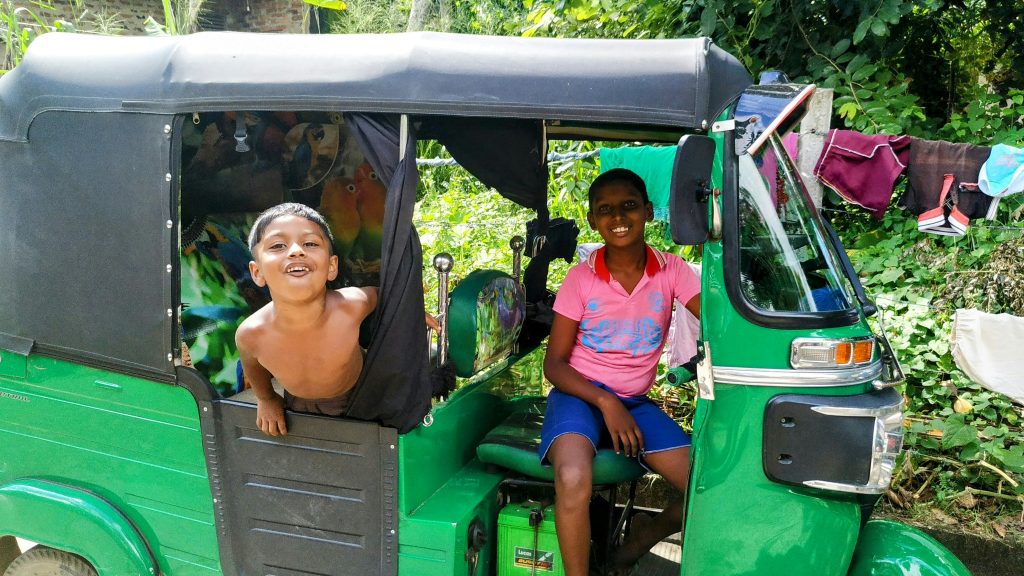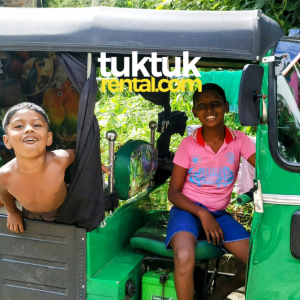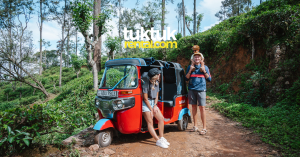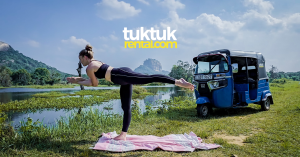Author: Pallavi Pundir
Table of Contents

There’s a common misconception that people with disabilities don’t travel. However, global statistics show otherwise. Disabled travellers represented a $35 billion market back in 2015. That figure jumped by an incredible 63 percent by 2020. Today, the world’s differently-abled community is about 16 percent of the global population, which amounts to 1.3 billion people.
Despite this, one rarely sees the travel industry catering to this vast population. The United Nations mandates that accessibility for all is a fundamental human right. In fact, many businesses miss that accessibility is key to tourism and central to sustainable travel. UN Tourism found tremendous business opportunities in disability-friendly travel. Their study estimates that travellers with disabilities almost always travel with 2 to 3 companions. Additionally, it stated that two out of three people with disabilities in developed economies likely have the means to travel.
Sri Lanka is a signatory to the UN Convention of the Rights of Persons with Disabilities. This ensures the country integrates accessibility into its services and development. The country is moving towards amending its 28-year-old disability laws. These changes will address modern challenges and align with the island’s future needs for more inclusive tourism.
In the meantime, what do you do if you’re planning a trip to one of South Asia’s tourism hotspots?
Planning Your Accessible Sri Lankan Holiday
So, what should you do if you’re planning a trip to this South Asian tourism hotspot?
In this island nation, tourism is a key industry that supports the country’s economy. Accessibility is a significant and growing feature of its landscape and infrastructure. You needn’t limit your imagination of travel to able-bodied adventurers here. A holiday in Sri Lanka can reveal many hidden gems, regardless of your ability. This includes the stunning beaches, the hill districts, and architectural marvels. If you want to plan that perfect, accessible holiday for yourself or your loved ones, this guide will help you travel smartly and with ease.
Is Sri Lanka Accessible to Differently-Abled Travellers?
Facing barriers in life is common, but this shouldn’t be the case when planning a trip to Sri Lanka. Across the country, many hotels and resorts have implemented wheelchair-friendly features. They have added pathways, slopes, ramps, and lifts to make tourists feel welcome. Some ancient sites have also been made accessible. Others have been left untouched to preserve their natural state. While more needs to be done for adventure travel, the country’s hospitality helps offset these challenges. Tourists of all kinds will find a warm and welcoming demeanour. Additionally, travellers can request assistance when visiting attractions that lack accessible infrastructure.
Things to Keep in Mind as a Traveller with Disabilities
It’s natural to have apprehensions about what to expect when travelling with a disability. In Sri Lanka, however, you can focus your expectations on encountering new cultures, flavours, and people.
First, it always helps to prepare in advance. This allows you to manage your time and see as much of the country as possible with available resources. For clothing, pack cotton or other light fabrics to stay comfortable in Sri Lanka’s coastal weather.
It is also a good idea to call your hotel in advance. You can confirm that the property meets your mobility needs. Booking your vehicle and a guide beforehand will also help you avoid last-minute hitches. Most public transport in Sri Lanka isn’t accessible. Booking a private vehicle with a ramp will make your rides much easier.
Lastly, good travel is all about timing. Sri Lanka sees heavy rainfall at different times of the year, which can hamper movement. To enjoy friendly weather, it helps if you book your trip anytime between January and April.
Tips to Book Your Accessibility-Friendly Tour
You have a plethora of scenic options to choose from.
Explore Yala National Park: You can book a vehicle equipped with wheelchair accessibility. This allows you to enjoy the scenic views of this famous national park.
Visit the Pinnawala Elephant Orphanage: This is an incredible opportunity to see mighty Asian elephants being cared for. Pinnawala has the largest herd of captive elephants in the world.
See the Temple of the Sacred Tooth Relic: Located in Kandy, this Buddhist temple houses the relic of the Buddha’s tooth. Legend says that whoever holds the relic holds governance of the country. This makes it a World Heritage Site.
Discover the Dutch Fort in Galle: This 17th-century fort was built by Dutch colonisers. It showcases the government’s incredible conservation efforts. It also houses the country’s multi-ethnic and multi-religious population. This UNESCO World Heritage Site survived the brutal 2004 tsunami. The Galle Dutch Fort is easily accessible for wheelchair users, with friendly entrances and parking.
Wander the Royal Botanic Gardens: Also in Kandy, these gardens are a highlight of the beautiful highland town of Nuwara Eliya. The garden has manicured walkways, shaded avenues, and plenty of space for easy exploration in a wheelchair.
At the end of the day, you can kick back and relax. Drop by any of the several disability-friendly restaurants to enjoy delicious local cuisine.
How Can I Take Care of My Differently-Abled Friend During the Trip?
Plan Ahead: Plan the trip well in advance to understand your friend’s specific needs and preferences. This includes medical considerations, location accessibility, and arranging any mobility aids.
Choose Travel Wisely: Most public transport in Sri Lanka, like railways or buses, is not accessibility-friendly. In that case, opting for a private vehicle is advisable. Air travel is often the best way to get mobility services and save time.
Pack Smart: When packing, consider important items like medication, insurance, and doctor’s contacts. This ensures you have everything you might not find locally. Carry extras in case of emergencies.
Communicate and Support: During the trip, communicate with your friend to assess their comfort. It’s also essential to allow them independence. Your assistance is most important in public spaces, where you can always ask for additional support.
Be Flexible: A cardinal rule for any trip is flexibility. Always expect delays or unexpected changes. Being open to changes will help you navigate your travel with more adventure and fun.
Reflect and Share: At the end of the trip, there’s nothing better than to reflect. Share your experiences with each other, and even with others back home!
What Can I Do Beyond Site-Seeing in Sri Lanka?
Being differently-abled doesn’t mean your activities are restricted. You can enjoy the peace and calm at Sri Lanka’s wondrous beaches or relish its textured flavours in restaurants. Here’s a list of other things you can do:
Join cooking classes to learn how to make local cuisine.
Join a pottery studio to channel your inner creativity.
If you’re a lover of culture, find a workshop on Batik, a famous regional print, to create your own design. You can even take it home as a souvenir.
If you’re near Nuwara Eliya, you can visit a tea factory and take home the country’s world-famous tea packs!
FAQ
Sri Lanka has many accessible options in terms of accommodation and tours. However, it helps to pre-book your domestic travel with a reliable travel agency to ensure they offer mobility-enhancing services such as ramps.
It’s usually advisable to choose a trusted transport service. Most public transport don’t have ramps and slopes. While it is advisable to book a private car, you can also opt for a tuktuk as a fun alternative along with a friend who can drive around Sri Lanka.



